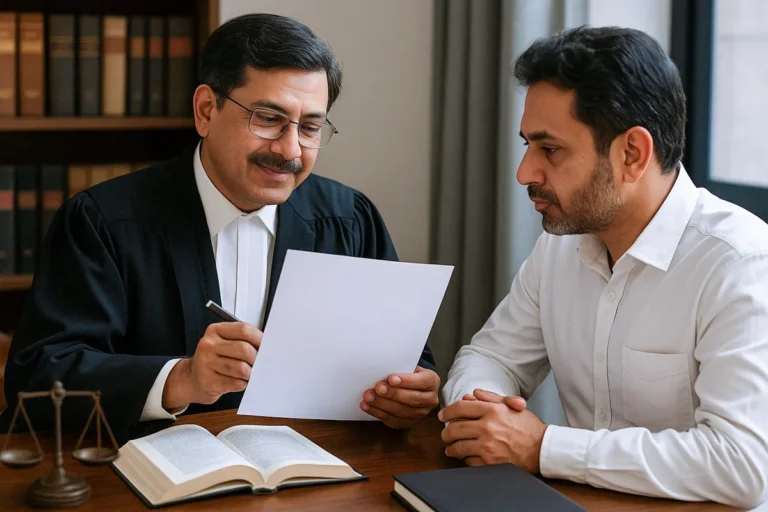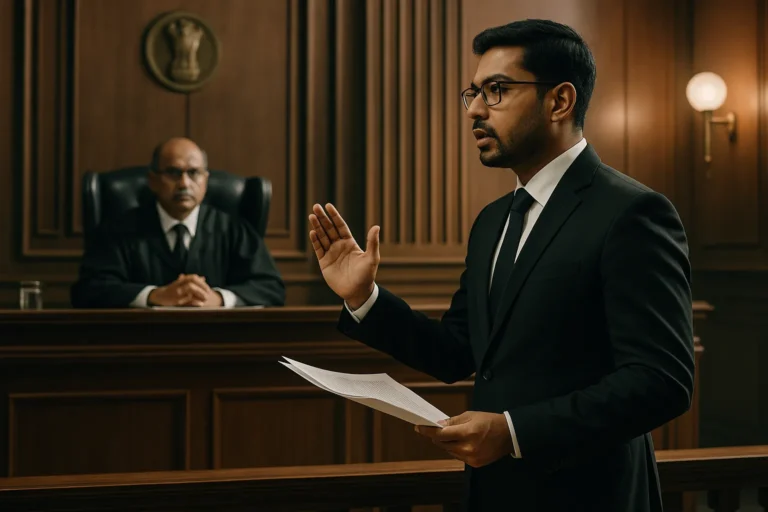What is POCSO Act: Comprehensive Guide & Defense Strategies
What is POCSO Act? The Protection of Children from Sexual Offences (POCSO) Act, 2012, is India’s landmark legislation aimed at safeguarding minors (under 18) against sexual abuse, exploitation, and pornography. Beyond defining offences, it introduces child-sensitive procedures for reporting, evidence recording, investigation, trial, and rehabilitation. The Act reflects India’s commitment under the UN Convention on the Rights of the Child to ensure every child’s right to a safe environment.
Key objectives of the POCSO Act include:
- Comprehensive definition of sexual crimes against children (penetrative, non‑penetrative, harassment, exploitation).
- Mandatory reporting by any person aware of offences, ensuring no silent bystandership.
- Establishment of Special Courts for in-camera trials with time-bound disposal.
- Protection measures: presumptive guilt of an adult, support persons for the child witness, and rehabilitation provisions.
By centralizing and strengthening legal sanctions, POCSO standardizes responses across states and enhances coordination among police, judiciary, and child welfare agencies.
What is POCSO Act: Key Provisions & Core Legal Safeguards

Dive into the critical components of POCSO and understand how it equips stakeholders to protect children effectively.
- Definition of “Child”
The Act applies to any person below eighteen years, regardless of gender or background. - Mandatory Reporting (Section 19)
- Any person (doctor, teacher, parent, professional) who suspects or witnesses an offence must report to police within 24 hours.
- Failure to report is punishable by imprisonment up to six months or a fine.
- Any person (doctor, teacher, parent, professional) who suspects or witnesses an offence must report to police within 24 hours.
- Offence Categories
a. Penetrative Sexual Assault (Section 3): Imprisonment for 10 years to life imprisonment; fine.
b. Aggravated Penetrative Sexual Assault (Section 5): Applies to trust holders, police, relatives; 20 years to life or death sentence.
c. Sexual Harassment (Section 7): 3 to 5 years imprisonment; includes inappropriate touching or voyeurism.
d. Use of Child for Pornography (Section 11): 5 to 7 years imprisonment; includes production, distribution, or viewership. - Child-Friendly Judicial Process
- Special Courts (Section 28): Designated courts to complete trials within one year, minimizing trauma.
- In-Camera Trial: Excludes public and media; strict confidentiality.
- Support Person & Recording (Sections 24–26): Child testimony recorded in open court; breaks allowed; no direct cross-examination by accused.
- Victim Compensation & Rehabilitation
- State funds to support medical, psychosocial care, and legal aid.
- Linkages with Juvenile Justice Boards and child welfare committees for aftercare.
When was POCSO Act passed?
The legislative journey reflects India’s evolving focus on child rights.
- Introduced in Parliament: February 2012.
- Lok Sabha Approval: 22 May 2012.
- Rajya Sabha Approval: 7 June 2012.
- President’s Assent & Enactment: 22 May 2012.
- Effective Date: 14 November 2012.
Since its enforcement, the Act has undergone policy reviews to address emerging challenges like online exploitation and ensure alignment with international best practices.
Is POCSO bailable?
Understanding bail provisions is crucial for the accused and guardians alike.

- General Rule: All POCSO offences are cognizable and non-bailable, reflecting the serious harm to children.
- Legal Basis: CrPC Sections 436-437 govern non-bailable offences; POCSO offences fall under Schedule I of IPC/CPC listings.
- Juvenile Accused (Under JJA, 2015): If the accused is a child, the Juvenile Justice Board may grant bail, focusing on rehabilitation over punishment.
Practical Tip: Early bail applications must highlight the absence of risk to the investigation or the victim, and strong community ties or rehabilitation prospects.
How to defend false POCSO charges

Allegations under POCSO can be socially and legally overwhelming. A robust defense hinges on systematic challenge and procedural compliance.
1. Scrutinize Evidence Thoroughly
- Medical Examination Reports: Note timing, consistency with the alleged act, and presence/absence of injuries.
- Digital Footprints: Secure CCTV footage, phone location data, and social media timestamps to establish an alibi.
- Forensic Analysis: DNA or physical evidence may bolster innocence.
2. Assess Witness Credibility
- Identify inconsistencies between statements-initial FIR, court depositions, police statements.
- Highlight potential biases, motivations, or coaching by the complainant’s guardians.
3. Leverage Procedural Safeguards
- Police Compliance (Sections 19–23): Ensure mandatory reporting, medical exam within 24 hours, and no handcuffing of the child.
- Challenge lapses: delayed FIR, improper recording of the child’s statement, absence of a support person.
4. Engage Expert Testimony
- Child Psychologists: Validate whether the child’s interview was free from suggestion or coercion.
- Forensic Experts: Confirm chain of custody for physical and digital evidence.
5. Strategic Legal Remedies
- File anticipatory or regular bail applications emphasizing a prima facie absence of offence.
- Approach the High Court under Article 226/227 for quashing malicious prosecution.
- Seek compensation under Section 357 CrPC for wrongful detention.
Tip: Maintain meticulous documentation of all court filings, medical records, and communications to preempt procedural objections.
Penalties under the POCSO Act
Children’s safety is paramount: POCSO prescribes stringent penalties to deter offences and ensure justice. Below is an overview of key punishments under the Act.
| Offence | Section | Punishment |
| Penetrative Sexual Assault | 3 | 10 years to life imprisonment; fine |
| Aggravated Penetrative Sexual Assault | 5 | 20 years to life imprisonment or death penalty |
| Sexual Harassment | 7 | 3 to 5 years imprisonment; fine |
| Use of a Child for Pornography | 11 | 5 to 7 years imprisonment; fine |
| Attempt to Commit an Offence | 12 | Half of the prescribed punishment for the respective offence |
Table: Major offences and corresponding penalties under POCSO
Recent Amendments & Updates
India’s commitment to strengthening child protection continues with new provisions tackling online and aggravated offences. Key updates include:
- 2019 Amendment: Death penalty for aggravated penetrative assault causing death or vegetative state (Section 6).
- Online Exploitation (Section 13B): New penalty of up to seven years for digital grooming and sharing child abuse materials.
- National Dashboard (2025): 754 fast-track and POCSO courts, 34,000+ pending cases, with average trial duration under 10 months.
- Inter-Agency Protocols: Guidelines for collaboration between NCPCR, CWCs, and police for victim support and case monitoring.
Reporting Mechanism & Role of Authorities
- Police: Designated officers record FIR under Section 19; facilitate medical exam per Section 27.
- Child Welfare Committees (CWCs): Provide immediate shelter, medical care, and psycho‑social support.
- National Commission for Protection of Child Rights (NCPCR): Monitors compliance, issues circulars on digital safety, and collates data for policy reforms.
Challenges & Prevention Strategies
Challenges:
- Delays in forensic reports and child-friendly infrastructure.
- Underreporting due to stigma or lack of awareness.
- Inconsistent training among stakeholders.
Prevention:
- School & community sensitization workshops.
- Mandatory staff training in schools, NGOs, and healthcare.
- Technology regulation: block illegal websites and rapid takedown protocols.
FAQs
What is the POCSO Act?
India’s Protection of Children from Sexual Offences Act, 2012, defines offences, procedures, and protections to shield minors from sexual crimes.
When was the POCSO Act passed?
Passed by Lok Sabha on 22 May 2012, approved by Rajya Sabha on 7 June 2012, effective from 14 November 2012.
Is POCSO bailable?
Generally non-bailable, except when a juvenile is accused; bail is granted by the Juvenile Justice Board, focusing on rehabilitation.
How to defend false POCSO charges?
Challenge evidentiary gaps, procedural lapses, hire experts, and pursue bail or quashing petitions early.
Can a person be tried under IPC and POCSO together?
Yes, POCSO has an overriding effect; complementary IPC provisions may apply if not covered by POCSO.
Get Legal Assistance Today.
Safeguard your rights and navigate complex POCSO proceedings with seasoned counsel. Contact Prashastha Legal for a detailed case assessment:






